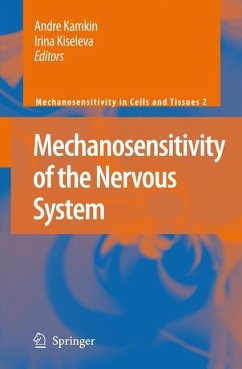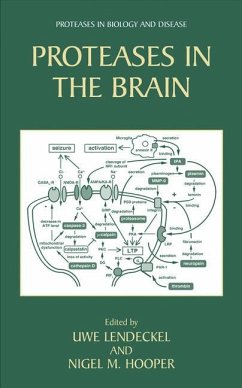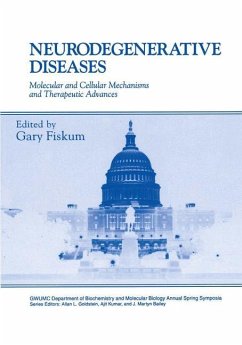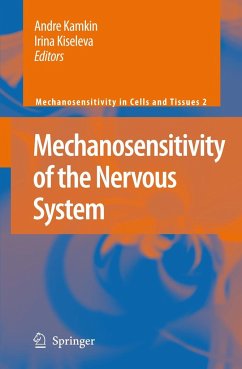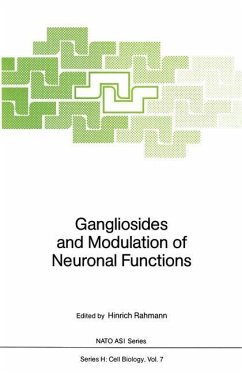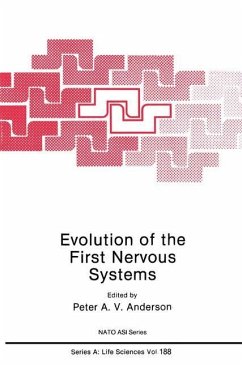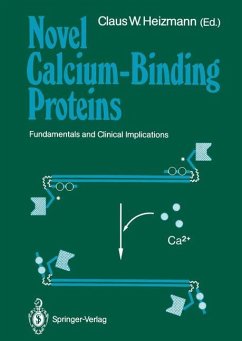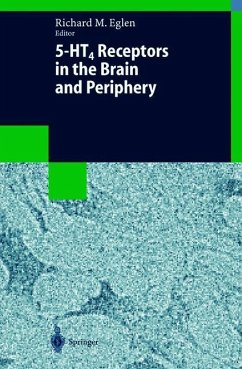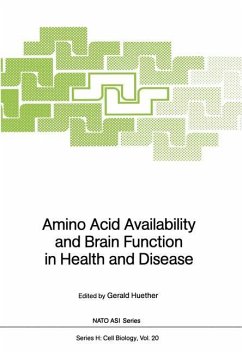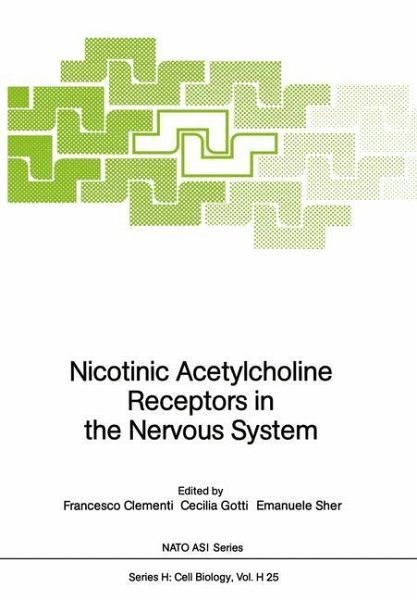
Nicotinic Acetylcholine Receptors in the Nervous System
Versandkostenfrei!
Versandfertig in 1-2 Wochen
77,99 €
inkl. MwSt.

PAYBACK Punkte
39 °P sammeln!
The acetylcholine nicotinic receptor is an ionic channel whose aperture is directly controlled by acetylcholine. It is a key molecule in the chemical communication between nerve cells and between nerve cell and muscle. The structure and function of muscular nicotinic receptors have been unraveled in recent years and its beauty and mysteries were reviewed in the Santorini NATO ARW organized by Dr. Maelicke in 1986. The neat, linear structure of this molecule and its conservation throughout evolution, from bacteria to humans, have led to the suggestion that it has reached the optimal structure f...
The acetylcholine nicotinic receptor is an ionic channel whose aperture is directly controlled by acetylcholine. It is a key molecule in the chemical communication between nerve cells and between nerve cell and muscle. The structure and function of muscular nicotinic receptors have been unraveled in recent years and its beauty and mysteries were reviewed in the Santorini NATO ARW organized by Dr. Maelicke in 1986. The neat, linear structure of this molecule and its conservation throughout evolution, from bacteria to humans, have led to the suggestion that it has reached the optimal structure for performing its function. But when scientists began to look at the nicotinic receptor in the nervous system, they found several surprises. From the beginning, pharmacological and physiological experiments, have made it clear that the functional characteristics of neuronal nicotinic receptors are substantially different from those of muscle receptors. Furthermore, recent sophisticated techniques such as patch clamp and gene cloning have revealed that the nicotinic receptor in the nervous system is not a single molecule but (although there are some important exceptions) a large family of similar molecules, which have in common the property of binding nicotinic agonists or antagonists. Over the last few years, the physiological implications of nicotinic receptors have been reevaluated on the basis of more precise behavioural and pharmacological techniques. Moreover, the involvement of nicotinic receptors in degenerative pathologies of the eNS, such as Parkinson's and Alzheimer's disease, has also been discovered very recently.





